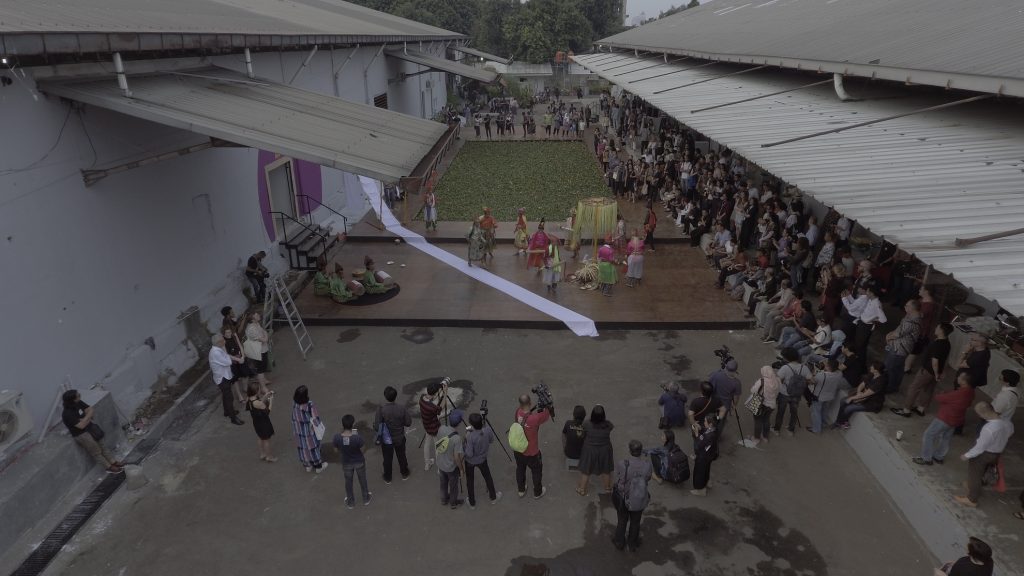Browse

As an art administrator in residence in JIWA: Jakarta Biennale 2017, held in the capital city of Indonesia, the foremost concern for me is not the capacity for the work itself, nor the English proficiency, but the ability to fathom others’ needs and the level of understanding amidst various cultures and languages. Moreover, different from artist residency which centers on personal creation, the position of an art administrator is similar to the role of a trainee as an exhibition assistant, whose task challenges both mental and physical adaptability to identify as a member of the curatorial team and to extend assistance to the artists while attempting to get gist of the exhibition planning and cultural differences. These sentiments happen to echo the conceptual framework of Jakarta Biennale 2017 –”JIWA” – which translates as spirit or life force (the underlying theme) as well as soul and ghost. Essentially, JIWA represents a person’s inner conflict and growth, which may be subject to external influences, including physical sensations, history and politics, social norms and other environmental factors.
Jakarta Biennale is different from the ones in other Indonesian cities such as Yogyakarta, Bandung or Makassar in the aspects of resources, scale, and curatorial structure, sometimes even deemed as the one with relatively more resources. How are the endeavors by the curatorial team, to search outward, rather than depending on governmental funds, for supportive solutions in the preliminary production and to collaborate with government-funded museums while retaining its curatorial function to critique Indonesia through the artworks? Besides, considering the enthusiastic and active participation and coverage by international media and curators drawn by the Biennale, for this talk I would like to share my thoughts, as an art administrator from Taiwan, on the interweaving points of Taiwanese and Indonesian arts amidst the current of tropical art. (This residency program refers to Bamboo Curtain Studio International Exchange Residency Program PART III “Jakarta Biennale”)
SPEAKER
Pei-yu Chen, graduated from the Graduate Institute of Animation and Film Art (The Film Art Division), Tainan National University of the Arts, Chen’s dissertation delves into the convergence of digital art and performing arts which has become a brand-new vocabulary for contemporary digital art and theatrical performance. Chen has won the Digital Art Criticism Awards of the Digital Art Festival Taipei for two times and had been the Executive Editor for ACT | Art Critique of Taiwan and the platform “Taiwan Digital Art and Information Centre” (currently “DigiArts”). Her focuses lie in visual art, film art, cross-cultural art, digital art, animal/botanical arts, and the themes such as soul, and nature. During the two years of her working holiday in Australia, she had visited various galleries, museums, and studios to interview international artists, which reflects her interest in the international cultural exchange. Her writings are mainly published in the magazine Artist and “DigiArts.”
No Man’s Land Residency & Nusantara Archive project (The 1st Year): http://www.facebook.com/NusantaraArchive/
Organizer: No Man’s Land; Digital Art Foundation
Associate Organizer: ET@T, Open-Contemporary Art Center
Observation Team: Chen Hsiang-wen, Ho Yu Kuen, Lai Ying-tai (supported by National Culture and Arts Foundation)